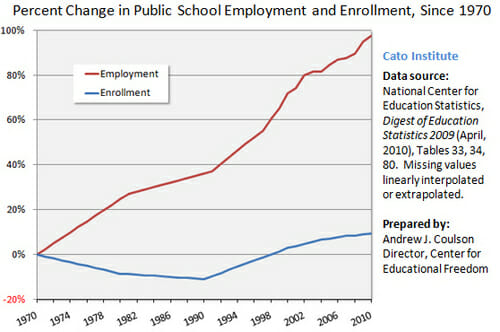The NLRB Is Not A Neutral Arbiter, It Has Its Thumb on The Scales for Unions
If you don't believe me, check out the NLRB's essentially no-show status in this case. Had the employer engaged in even 1% of the practices the union had, the NLRB would have intervened in a second
In 2005, the SEIU decided to try to break into Houston by pushing “justice for janitors.” It began persuading the biggest janitorial companies in town to accept Local 5 as the representative for their workers. Five firms agreed. The sixth was Professional Janitorial Services.
The union wanted to organize workers through “card check,” which allows it to pressure workers one by one to sign an “authorization for representation.” But PJS insisted on a vote by secret ballot, as is its right.
The union responded with a campaign whose goals, according to internal emails entered into evidence, were to “cost PJS money” and “cost PJS accounts.” It accused the company of withholding workers’ pay, forcing them to work off the clock, and firing those involved with the union—none of which was substantiated.
The union filed “unfair practices” complaints against the company to the National Labor Relations Board, then withdrew some of them before they could be disproved. It filed a lawsuit against PJS that was dismissed. Mr. Zavitsanos argued to the jury that the union was trying to use these processes to libel-proof itself, since it cited the legal actions to substantiate its attacks on PJS.
The union sent letters to the building-management companies that contracted with PJS, spreading accusations. It circulated vicious fliers at disruptive demonstrations. One building manager said in a deposition that she fired PJS after protesters stormed her conference rooms while tenants were using them. PJS lost a dozen contracts. Usually somebody from Local 5 would email a colleague to take credit, which made damages easy to prove once the emails were discovered. In 2007, PJS announced in a press release that it would sue the union for “harassing and intimidating our customers along with companies and individuals that may be contemplating doing business with us.”
Mr. Zavitsanos argued to the jury that the Local 5 was operating out of an official SEIU playbook. This document, called the “Contract Campaign Manual,” surfaced five years ago in a different case, a racketeering lawsuit brought against the union by the food-services company Sodexo, which ultimately was settled. The manual advised union workers to “disobey laws which are used to enforce injustice against working people” and to threaten managers with accusations of racism or sexism.
Note that the Left came within an ace several years ago of eliminating secret ballots in union authorization votes. The Left argued that card check was functionally equivalent to a secret ballot, but if this is true, why is the union going through so much trouble to avoid a confidential vote?

